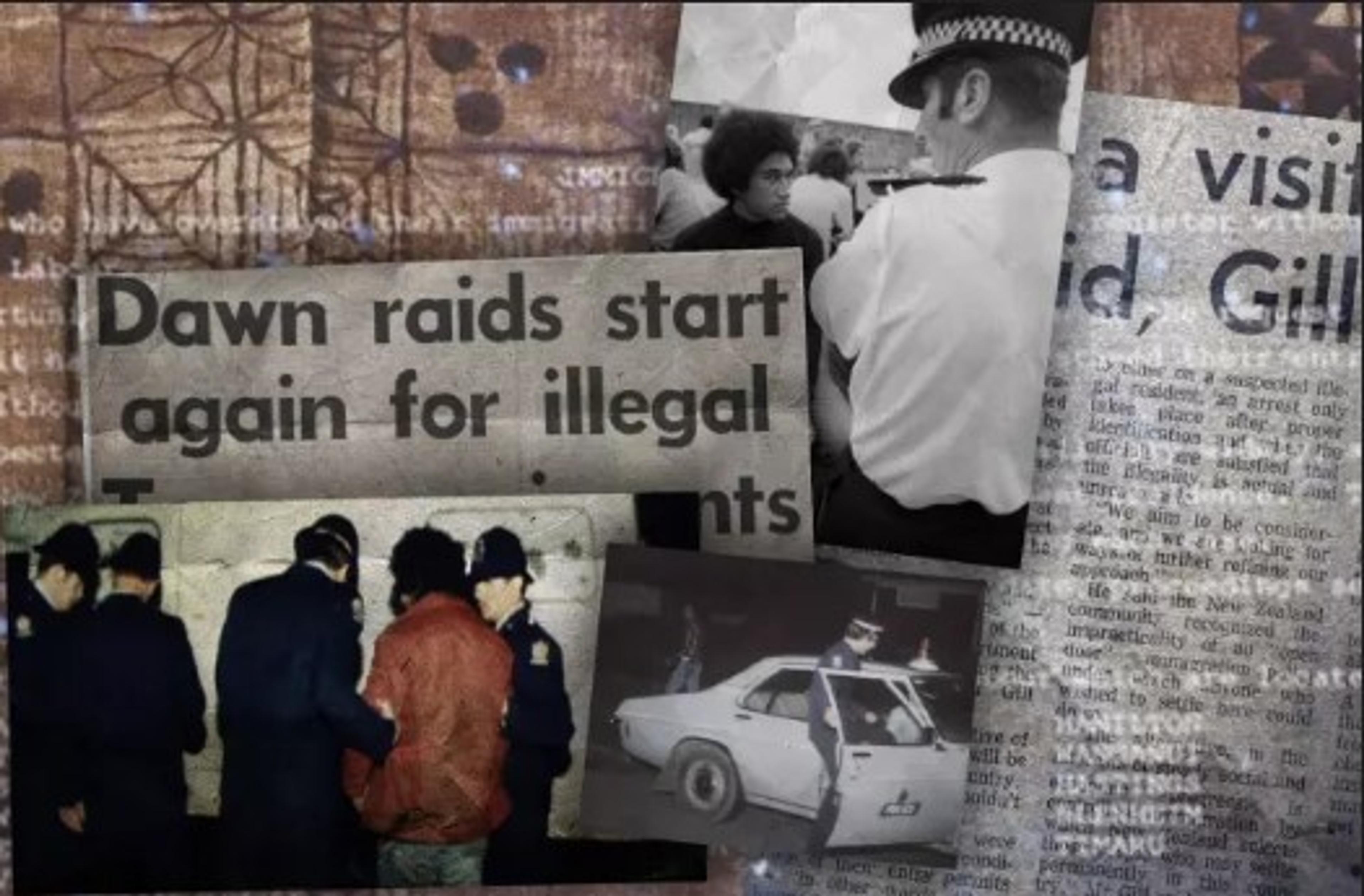

Two foundational members of the Polynesian Panther Party reflect on a legacy of pushing back against oppressive systems.
Photo/Facebook.
54 years on, Polynesian Panthers still roar
Foundational members reflect on their journey from 1970s resistance to educating a new generation about systemic racism.



Visa-free Pacific-travel push splits Parliament as ACT holds back

'Keep the eyeballs on the game': All Blacks legend backs Super Rugby shake-up

A.R.T sets new Pacific music pace with ‘First Thursday’ releases


Visa-free Pacific-travel push splits Parliament as ACT holds back

'Keep the eyeballs on the game': All Blacks legend backs Super Rugby shake-up
The Polynesian Panther Party continues to lead efforts in anti-racism, education, and community advocacy, grounded in Pasifika legacy.
The group was formed on 16 June 1971 by young Pacific people responding to racism, police harassment, and inequalities in education, housing, and employment. Their grassroots initiatives, including food co-operatives, homework centres, and legal aid, originated in Ponsonby and became a hallmark of community resistance between 1971 and 1974.
Speaking with ‘Ala Vailala on Pacific Mornings, Lupematasila Misatauveve Dr Melani Anae and Reverend Alec Toleafoa, the party’s foundational members, note that their continued unity and impact stem from being the first generation of New Zealand-born Pasifika.
“At the beginning of the Panthers, we're the only united Pasifika voice to stand up and speak out against the kind of behaviours: the racism or discrimination that we're experiencing at the time, and we're only 16, 17 year olds,” Toleafoa says.
“Calling out racism, discrimination, the injustices in education and accommodation, employment, all those sorts of things, at a very young age. The question we ask of Pacific activism today is, would you be there on your kaupapa in 50 years' time?”
Today the Poly Panthers’ legacy remains strong through initiatives like education-based programme “Educate to Liberate”, which has engaged thousands of students nationwide for over a decade. Lupematasila says that while the methods of resistance have evolved, the core motivation remains unchanged.
“Racism is still here, it's keeping that fire burning in our belly still to fight against the racism for our people,” Lupematasila says. “But the thing is, it’s veiled now, in terms of social media, and nothing's taught in the schools about colonialism, our history as Pasifika in New Zealand. So they grow up ignorant of what racism is. We are firmly attacking institutional systemic racism.
“That's what we've been doing in our programme in the schools, is focussing on what systemic and institutional racism is, so our kids understand what they're fighting against, because they are not able to work it out with what's available in the schools at the moment.”
Both speakers also reflected on the 2021 Dawn Raids apology and the recent government funding cuts to the reconciliation programme. Toleafoa says the cuts were unexpected, and that their kaupapa has never relied on government support.
“We don't need the money to teach people about racism, we can do it ourselves and that's what we learned as Panthers. Don't wait for anyone to do anything for you. This is what we thrive on, is not relying on money or the government or politicians.
“We are free to tell our stories, to fight against what's hurting our people. And that's what we should do to unite as we did as Panthers in the 1970s to fight against racism still.” Toleafoa adds that the core purpose of the apology was always about healing, not compensation.
“It was never about anything else other than just opening that space that had been shut for 50 years for our people to start talking. To be feeling confident and understand that they were not the ones to blame for the treatment.
‘“One example: 222 homes that were raided. Out of the 222 homes, there's only 23 people found to be here unlawfully. So the majority of those homes that were invaded, all the people were innocent, but they still experienced the trauma and the hurt and most of all being innocent.”
Watch the Polynesian Panther Party reflect on 50 years of activism below.
Toleafoa also acknowledges the 2023 incident where Immigration New Zealand controversially detained and deported a migrant worker, leading to public outrage. “People were pointing to the apology and saying ‘this is what you said and now this is what you're doing’.
“Another important aspect of the apology was added. Now it's becoming a reference for our people. And a net result of that was groups like the Polynesian Panther Party Legacy Trust were invited to talk with the power holders, and the lawmakers about changing the law.
“That's how the apology has grown in its impact, its availability and accessibility for our people to be able to say, here's something concrete now that we can point to, which we never had before,” Toleafa says.”
Lupematasila says she is confident of the future, adding that their education programme in schools has contributed to a “quiet revolution” across the motu over the past 40 years.
“Our story about racism in New Zealand and how through our Panther lens has created this whole new generation - intergenerational understanding. We see that in [Hīkoi mō te Tiriti], it wasn't just us brown people that were doing the Hīkoi, it was all New Zealanders that joined in.
“This is what we're so proud about in terms of educating to liberate our programmes. We need to expose what racism does to this younger generation. It feels like the 1970s right now, that racism is rampant all over the world.
“I've got every confidence that young people will stand up against it. What we've been trying to build with our programme, are young Māori and Pacific kids who can stand up in their own mana and say no to racism.”